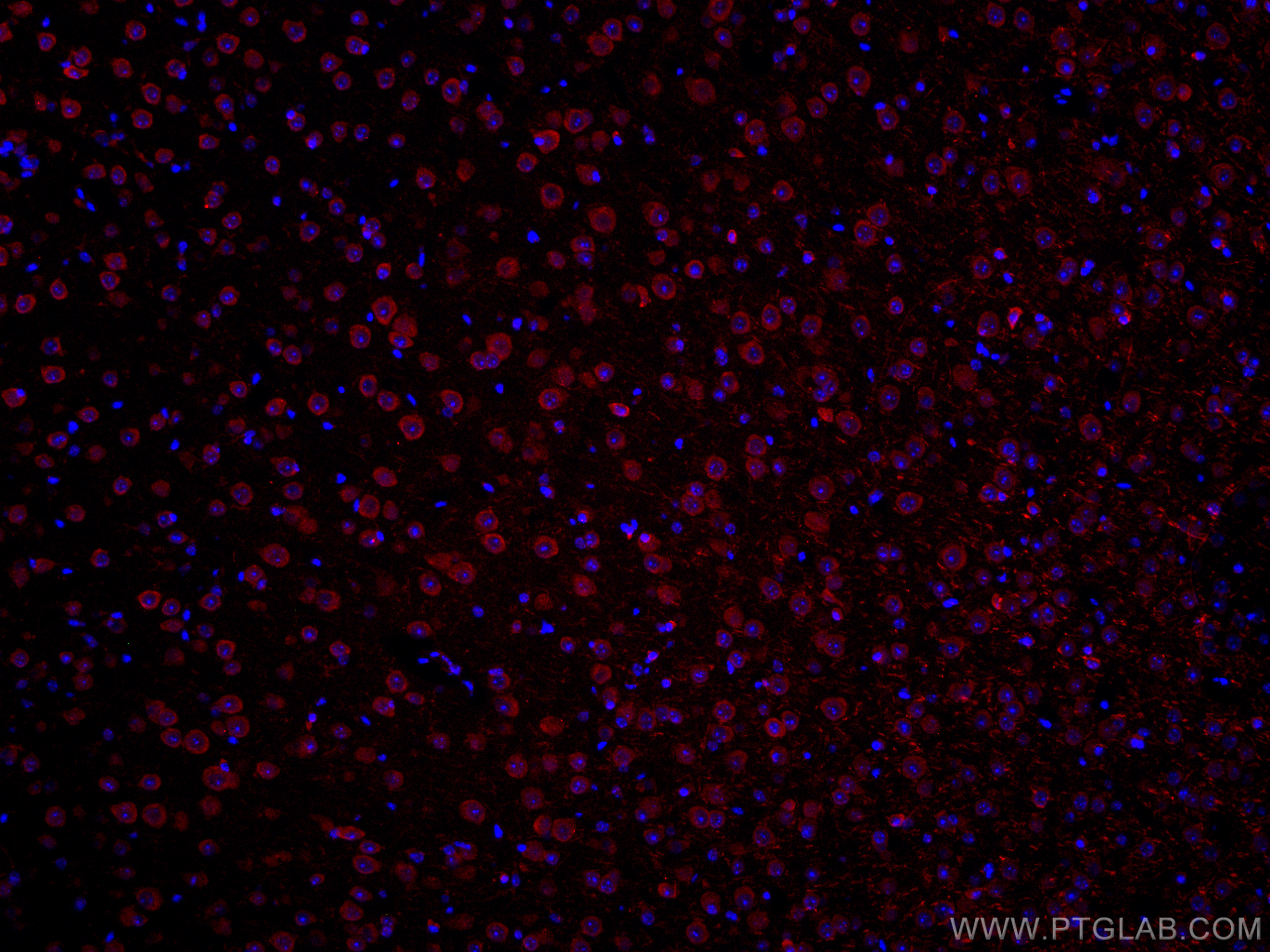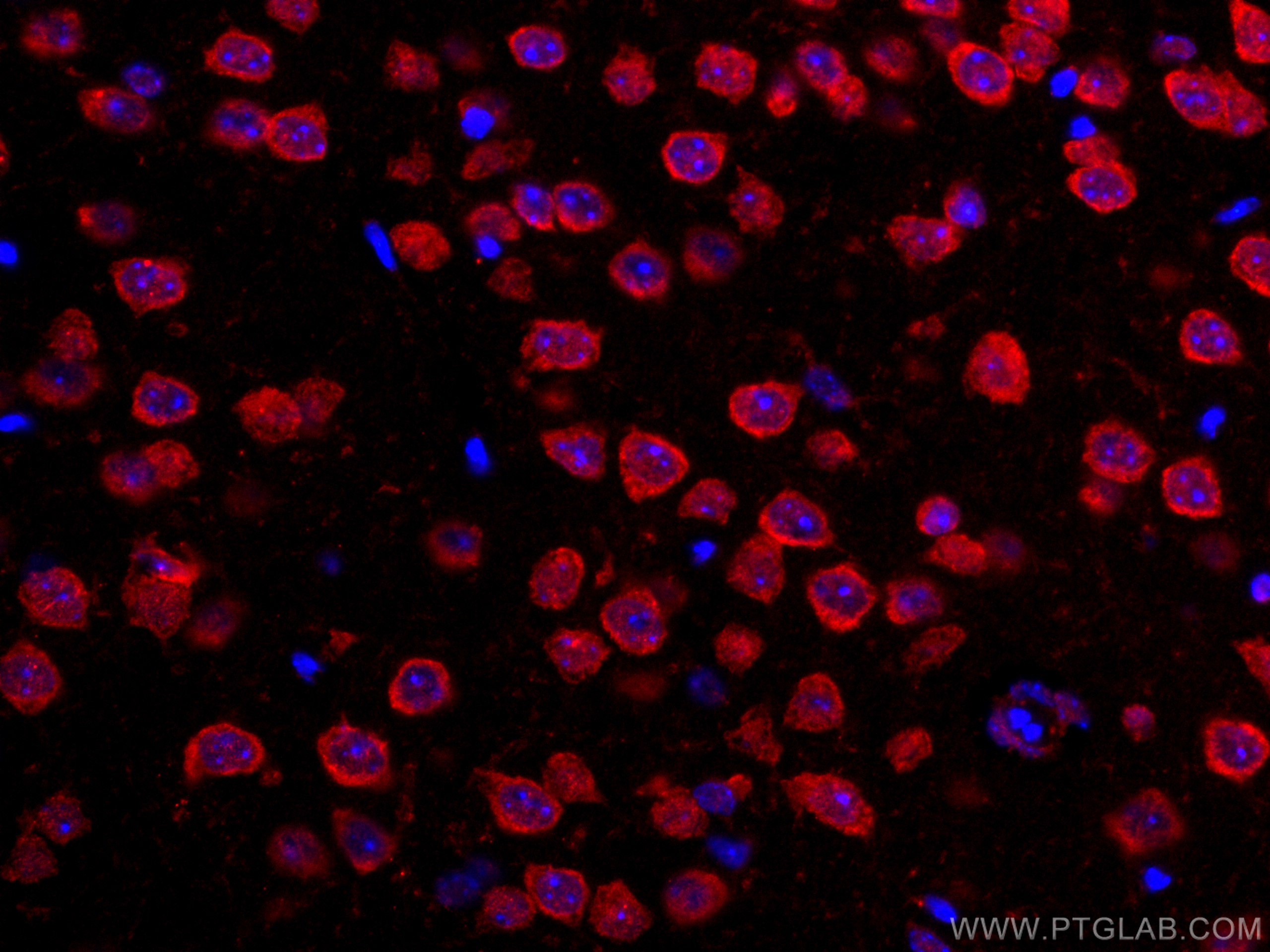验证数据展示
经过测试的应用
| Positive IF-P detected in | mouse brain tissue |
推荐稀释比
| 应用 | 推荐稀释比 |
|---|---|
| Immunofluorescence (IF)-P | IF-P : 1:50-1:500 |
| It is recommended that this reagent should be titrated in each testing system to obtain optimal results. | |
| Sample-dependent, Check data in validation data gallery. | |
产品信息
CL594-67342 targets TRIM2 in IF-P applications and shows reactivity with Human, Mouse, Rat, Pig samples.
| 经测试应用 | IF-P Application Description |
| 经测试反应性 | Human, Mouse, Rat, Pig |
| 免疫原 | TRIM2 fusion protein Ag14637 种属同源性预测 |
| 宿主/亚型 | Mouse / IgG1 |
| 抗体类别 | Monoclonal |
| 产品类型 | Antibody |
| 全称 | tripartite motif-containing 2 |
| 别名 | KIAA0517, RING finger protein 86, RNF86, TRIM2, tripartite motif containing 2 |
| 计算分子量 | 744 aa, 82 kDa |
| 观测分子量 | 70-85 kDa |
| GenBank蛋白编号 | BC011052 |
| 基因名称 | TRIM2 |
| Gene ID (NCBI) | 23321 |
| RRID | AB_2920118 |
| 偶联类型 | CoraLite®594 Fluorescent Dye |
| 最大激发/发射波长 | 588 nm / 604 nm |
| 形式 | Liquid |
| 纯化方式 | Protein G purification |
| UNIPROT ID | Q9C040 |
| 储存缓冲液 | PBS with 50% glycerol, 0.05% Proclin300, 0.5% BSA , pH 7.3 |
| 储存条件 | Store at -20°C. Avoid exposure to light. Stable for one year after shipment. Aliquoting is unnecessary for -20oC storage. |
背景介绍
Tripartite motif-containing 2(TRIM2) is an E3 ubiquitin ligase which directs proteasome-mediated degradation of target proteins by the ubiquitination of NEFL and phosphorylation of BCL2L11. This protein contains an N-terminal RING domain, followed by a B-box-2 domain, a coiled-coil region, and 6 C-terminal NHL repeats. TRIM2 involves in the apoptotic response to ischemia via directing degradation of BIM protein, thus has a role in neuroprotection.
实验方案
| Product Specific Protocols | |
|---|---|
| IF protocol for CL594 TRIM2 antibody CL594-67342 | Download protocol |
| Standard Protocols | |
|---|---|
| Click here to view our Standard Protocols |

